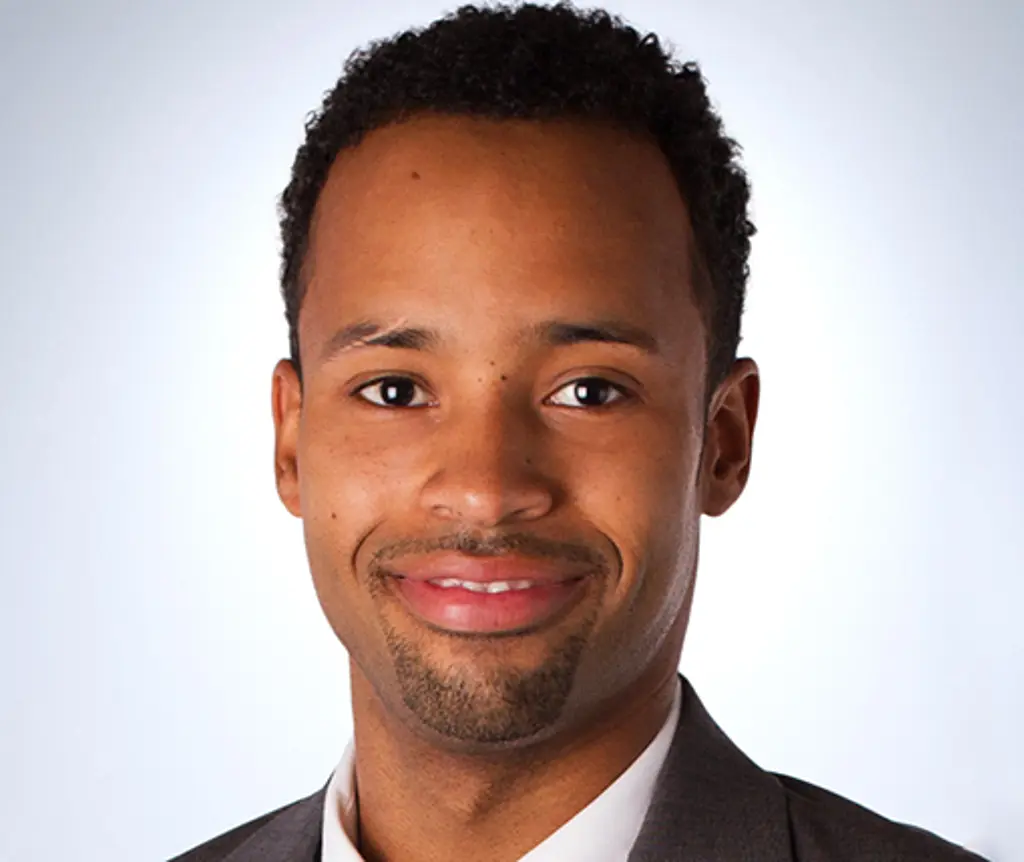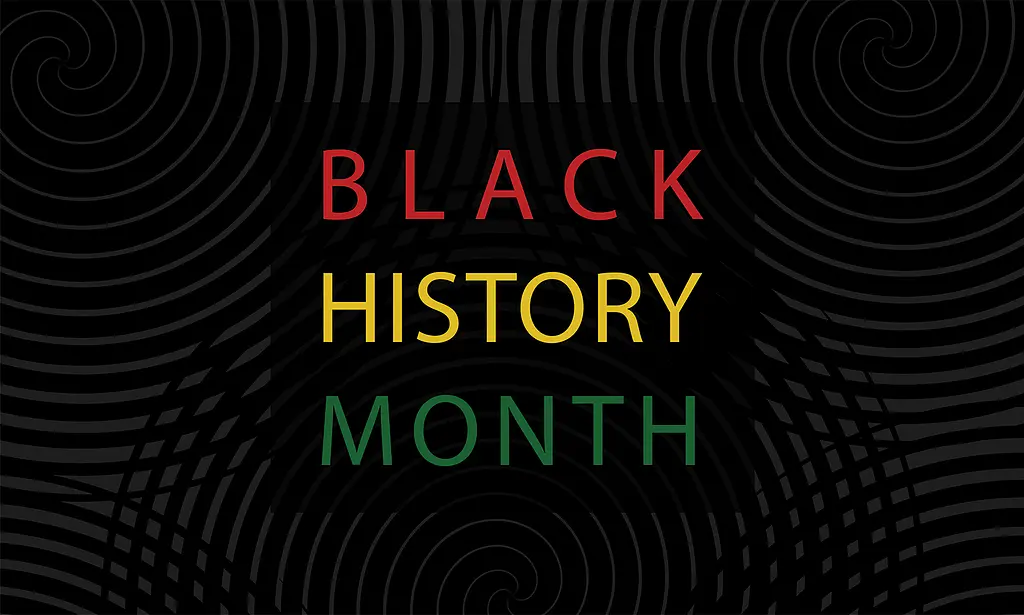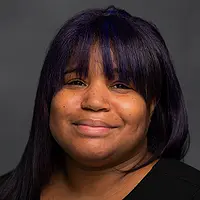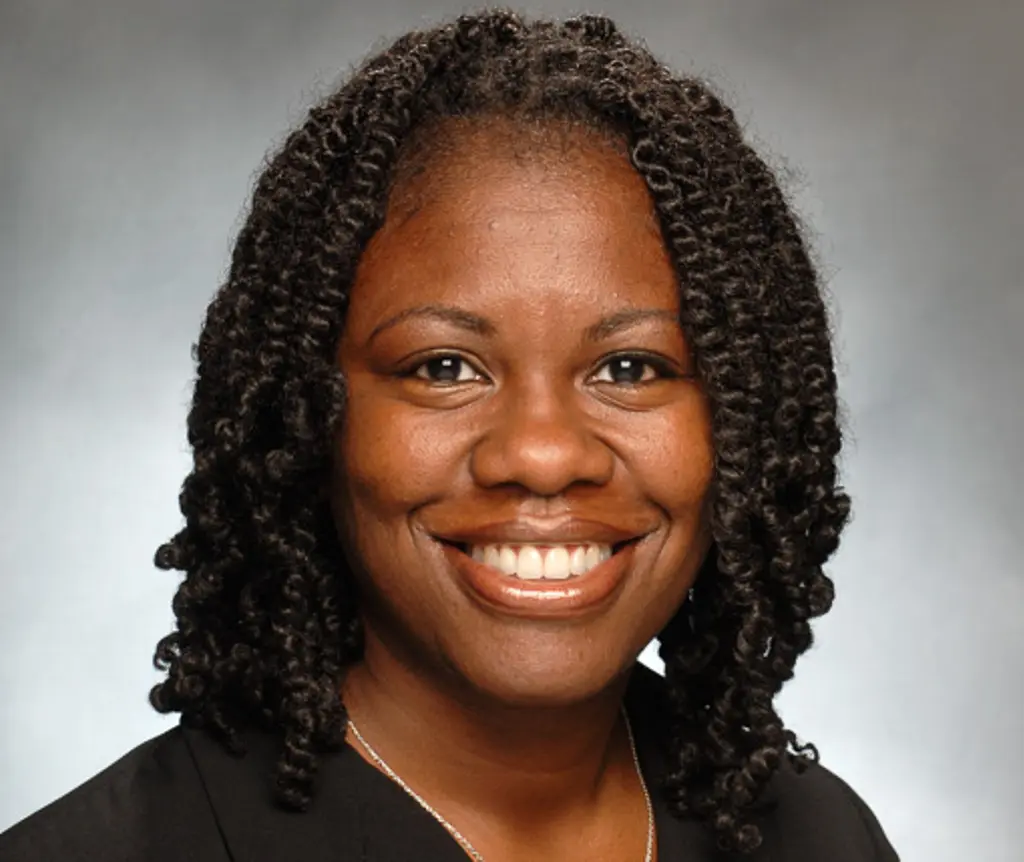Black History Month is a great moment to celebrate the people close to us whose inspiring and impactful contributions are making the world a better place. As co-leads of the Racial Justice and Equity team in RTI’s International Development Group we’re excited to recognize Dr. Stephanie Hawkins and Ian McClenny, two Black researchers at RTI who are leaders in their fields and in advancing RTI’s mission to improve the human condition.
We invite you to read our interviews below to learn more about their backgrounds, what drives them, and their important work
Dr. Stephanie Hawkins
Dr. Stephanie Hawkins joined RTI in 2001. She is a clinical psychologist and serves as the Director of the Youth, Violence Prevention, and Community Justice program. Dr. Hawkins is also building the infrastructure for RTI’s Racial Justice and Transformative Research portfolio. Dr. Hawkins’ research expertise spans the substantive areas of community-based violence prevention, school safety, juveniles involved in the criminal legal system, and equitable outcomes for youth.
Dr. Hawkins is the proud graduate of two Historically Black Colleges and Universities (HBCUs): Spelman College, where she earned a bachelor’s degree in Psychology; and Howard University, where she earned a master’s and doctoral degree in Clinical Psychology. She completed a research and clinical postdoctoral fellowship at Stanford University focused on violence prevention research.
Dr. Hawkins is passionate about research that centers equity as well as the health and safety of Black youth and marginalized communities.
What drew you to youth, violence prevention, and community justice work?
During my junior year in college, I participated in a research program at Howard University in Washington, DC. I worked in a research lab focused on understanding the impact of community violence on child development. I was hooked! At that time, Washington DC had the unfortunate title of the "murder capital of the US." I was fascinated to understand what supports need to be in place to allow young children to thrive in the context of violence and poverty. Ultimately, I decided to purse my doctoral education in Clinical Psychology at Howard University so I could continue with this research.
While at Howard, I was honored to be a part of the Multidisciplinary International Research Training (MIRT/MHIRT) program. This is a national program designed to encourage predoctoral and postdoctoral trainees who are from health disparities populations to pursue research, teaching, and leadership careers in biomedical, clinical, and behavioral sciences. I spent the summer of 1996 in Johannesburg, South Africa studying the impact of community violence on child development. This was two years after the official end of Apartheid. And sadly, the context of community violence in Johannesburg was very similar to my work in Washington, DC.
These early research experiences, for me, solidified the importance of focusing on youth, violence prevention, and community justice. The healthy development of our young people depends on it.
What excites you about the racial equity and justice planning initiative that you are leading at RTI?
Everything! I've been a part of the RTI community for 20 years (this June) and I've been able to work on behalf of young people and marginalized communities for this entire time. I really believe this is our (RTI’s) moment to fully step into the contributions we can make to the global discourse on racial justice and inequities. What I envision is for RTI to be recognized on a local, national, and international level for the racial justice and equity research we conduct.
What does Black History Month mean to you?
It's an opportunity to focus on and appreciate the leadership and contributions Black people have made to our society. As a parent, it's an opportunity to celebrate and highlight the accomplishments of Black people ranging from those who are well known to those in our communities who are doing good work.
What book(s) are you currently reading?
The Vanishing Half by Brit Bennett

Ian McClenny, Energy Specialist
Ian McClenny is an Energy Specialist with expertise in renewable energy resources, smart grid technologies, and electricity markets. A published research scientist in the field of electrochemical energy storage, he has extensive experience working with multi-national battery firms developing market-ready solutions for both electric utilities and commercial end users. At RTI, Ian conducts energy sector analyses spanning techno-economic, commercial, regulatory and policy aspects of energy system advancement and deployment. Additionally, he contributes to on-grid and off-grid renewable energy project development, climate mitigation strategies, electric utility operations improvement, and demand-side management, among other sector-specific tasks that enhance the positive impact of electricity in emerging markets. Ian holds a master’s degree in Chemical Engineering and Materials Science from Virginia Commonwealth University.
What attracted you to renewable energy?
I grew to love everything renewable energy technology by proxy; climate change and energy access are the overarching issues that stimulated my appetite to learn more about the energy sector. My values ultimately lie with enabling positive environmental and economic impacts on people. Today, I strive to answer the renewable energy industry’s toughest problems that plague grids around the globe. I particularly have found a niche in studying energy storage technologies. I believe that electricity storage is the key technology that will usher the world into an energy renaissance. I am fully engaged on how we at RTI can be on the forefront of innovation for renewable energy and energy storage in the varying contexts we work in.
How important is diversity in your research area?
The way that people around the world consume energy is characteristically distinct; it is important to understand the nuance of this. The energy industry needs people from diverse backgrounds that can articulate their community’s distinctive issues. The shift to distributed energy and the regionalization of resources in my opinion is a direct reflection of increased understanding of the way people live. End users of the electricity are institutions that we frequent every day like schools, churches, the barber, and local markets. Building a resilient system that powers these institutions is of the utmost importance to me. It improves the quality of lives for the collective, and it starts with listening to people from outside our realm of understanding.
Who are the influential Black role models in your life?
On a personal level, I would not be anywhere without the love and support of my family. They are my role models, champions, critics, and supporters no matter the circumstance. Professionally, Dr. Karl Reid of the National Society of Black Engineers has served as a role model I lean on as I continue to navigate my path in the energy sector.
I am generally a lover of greatness, so I love to study the lives and decisions of some of the heralded black leaders of our past. Martin, Malcolm, Madame CJ Walker, Shirley Chisolm are all individuals that I have spent hours upon hours reading about and internalizing since high school.
I think it’s also important to highlight our modern-day change agents, especially in the midst of the Black renaissance we are currently in. A few that I find myself reading and listening to in recent history are Michael Render (aka “Killer Mike”), Van Jones, Maya Wiley, and Ta-Nehisi Coates.
When you are not working on renewable energy, what do you like to do in your spare time?
I am an avid basketball fan; I spend a considerable amount of my spare time as a basketball official. It has allowed me to travel places and meet people that I otherwise would not have had the opportunity. Outside of that, I enjoy reading, listening to podcasts, and playing golf.




